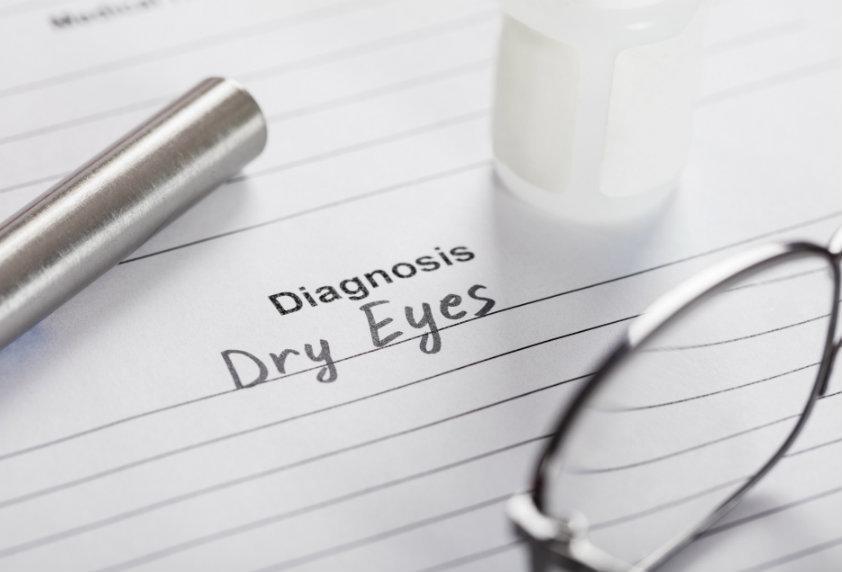Dry eye is a common eye condition that occurs when the tear ducts aren’t able to provide adequate moisture for the eyes. This lack of moisture leads to inflammation of the tissue in the eyes. As a result, it is common for patients with dry eyes to suffer discomfort. Fortunately, there are many over-the-counter and prescription drugs that can help with dry eyes. Here is some information about the common medications for dry eyes and their side effects.
Artificial Tears
An eye doctor will usually recommend patients who have dry eyes to take artificial tears, which are lubricant eye drops. The purpose of artificial tears is to treat the irritation, dryness, and inflammation associated with insufficient production of tears. Artificial tears are also used during eye examinations and for the purpose of moistening the contact lenses. Patients can purchase artificial tears as over-the-counter medications. While artificial tears will relieve the symptoms of insufficient tear production, it will not deal with the cause. Therefore, for moderate and severe forms of dry eyes, patients should supplement artificial tears with other treatments.
Some common artificial tears side effects include:
- Change in vision
- Eye irritation or redness for more than 72 hours
- Eye pain
- Allergic reactions
Some signs and symptoms of an allergic reaction to artificial tear drops are skin rashes, hives, itching, and swelling of the face, tongue, or lips.
Immunosuppressive Drugs
For moderate to severe dry eyes, an eye doctor will recommend immunosuppressive drugs. Unlike artificial tears, immunosuppressive drugs will treat the cause of the chronic dry eyes. Immunosuppressive drugs for dry eyes often contain cyclosporine. Usually, oral medications with cyclosporine as its active ingredient are used to treat psoriasis or rheumatoid arthritis and prevent organ rejection after a transplant. However, cyclosporine in the eye drop form can treat moderate to severe dry eye.
Some examples of common medication brands of cyclosporine include:
- Neoral
- Restasis
- Sandimmune
- Gengraf
Unlike artificial eye drops, immunosuppressive patients require a prescription.
The side effects of these medications include:
- Fever
- Body aches
- Chills
- Decreased vision
- Confusion
- Weakness
- Problems with walking or speech
- Sores in the mouth and threat
- Flu symptoms
Dry eye is an annoyance for some, but can be a severe source of discomfort for others. In fact, dry eye can reduce the quality of life of patients who suffer from the chronic and severe form of this condition. Fortunately, individuals suffering from chronic dry eye can resort to artificial tears or prescription immunosuppressive medications. For more information about common drugs to help with dry eyes, don’t hesitate to contact us here at the Southwestern Eye Center.
